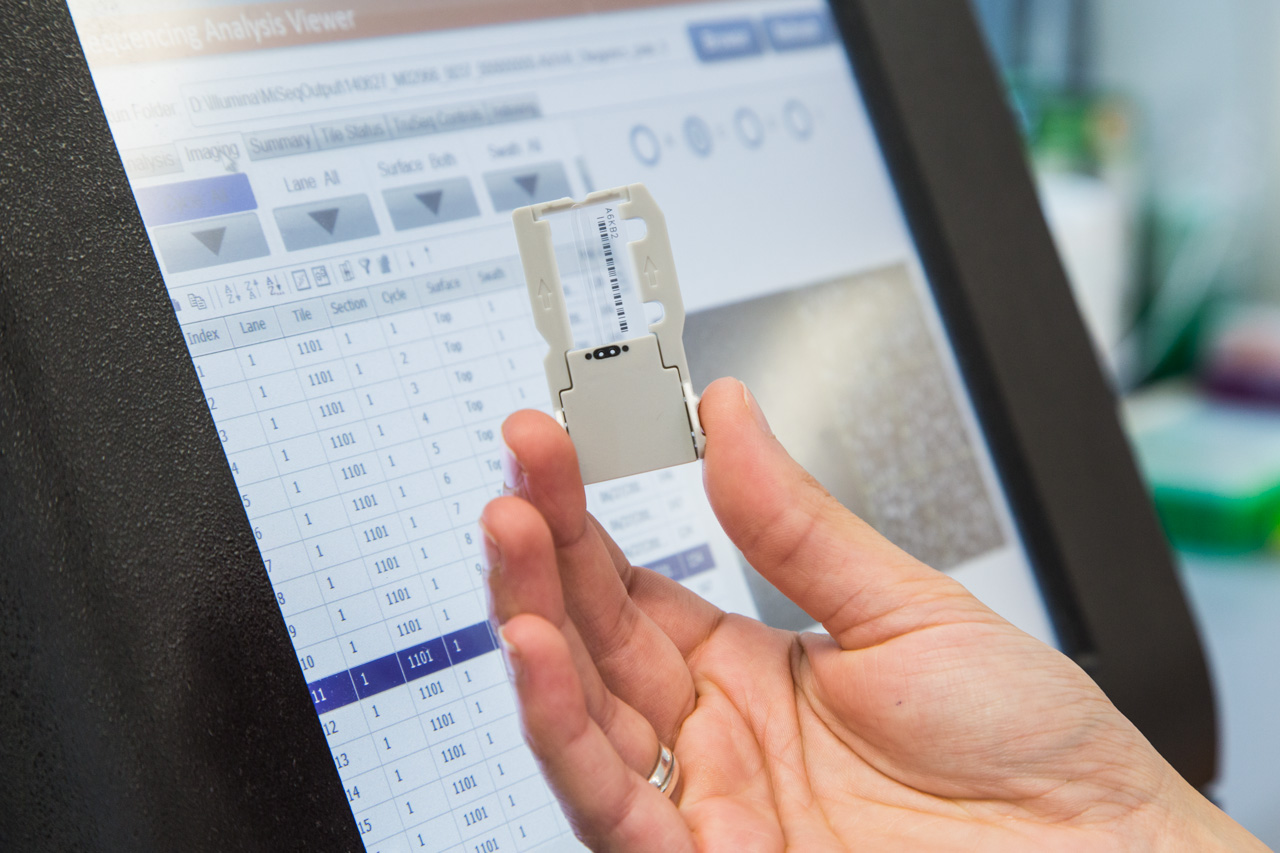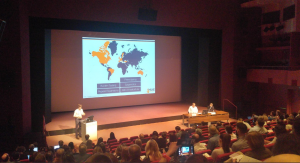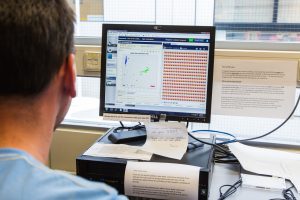 On May 18th, researchers & ALS foundations gathered in Ljubljana, the capital of Slovenia, to discuss the progress of Project MinE. More than 9,000 DNA profiles have been sequenced so far, creating the largest whole genome sequencing dataset that has ever been available for ALS research!
On May 18th, researchers & ALS foundations gathered in Ljubljana, the capital of Slovenia, to discuss the progress of Project MinE. More than 9,000 DNA profiles have been sequenced so far, creating the largest whole genome sequencing dataset that has ever been available for ALS research!
This Project MinE consortium meeting was held as a side meeting at the 15th annual meeting of ENCALS, a scientific conference of the European Network to Cure ALS.

Presentation of researcher Rick van der Spek, UMC Utrecht, about the Project MinE databrowser at the international ENCALS meeting in Ljubljana, Slovenia
38% funded
Prof. Leonard van den Berg, chairman of ENCALS and the ALS Center Netherlands at the UMC Utrecht, provided an update. So far, 38% of the project is funded. Many countries have been successful in fundraising, but there is still a lot of work to do to reach our goal of 22,500 DNA profiles.
More than 9,000 DNA profiles have been sequenced
The most DNA profiles so far have been contributed by the Netherlands, the UK, Ireland, the USA, Australia, Belgium, Spain and Turkey. The share of the USA will be increased amongst others thanks to a collaboration with the project Answer ALS.
Ireland already had 300 DNA samples sequenced this year. In total they now have 687 samples sequenced and they approaches their goal of 1,125 samples.
Sweden and France are preparing to have samples sequenced. Brazil, Portugal and Israël contributed some samples and are raising funds to have more samples sequenced. Canada is succesful in fund raising to increase their share in this international endeavour.
In total, more than 9,000 DNA profiles have been sequenced already.
However, to find more ALS genes and untangle the genetic causes of ALS, even more sequenced DNA profiles are needed.
10,000 Threshold
If all countries manage to continue as planned, we will pass the 10,000 threshold this year. Please donate to make this happen!
Every dollar/ euro will be spent on sequencing DNA profiles to search for the genetic causes of ALS/MND
Deliverables achieved so far:
- Replication Site for the discovery of TUBA4A as an ALS associated gene (Neuron 2014, 84:324)
- Replication Site for the discovery of TBK1 as an ALS associated gene (Science 2015, 347:1436)
- Identification of C21orf2 as a new ALS gene (Nature Genetics 2016, 48:1043)
- Identification of NEK1 as a new ALS gene (Nature Genetics 2016, 48:1037)
- Shared genetic origin for ALS and schizophrenia
- Further unraveling of the ALS genetic architecture
